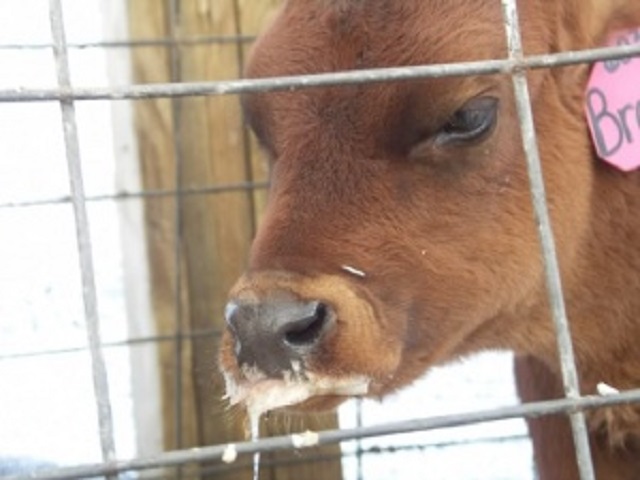Rabies from a cow! – Infected beast’s milk puts 9 at risk

Whinsley Masara, Chronicle Reporter
A FAMILY of nine in Nkayi has been put under surveillance as it is feared to have contracted rabies after consuming milk from a cow that had been bitten by a stray rabid dog.
The family admitted to have milked the cow for over a month until it died last week after it had been bitten by the dog.
Rabies in humans is fatal in most cases and infected people slowly become paralysed and eventually slip into a coma and die.
Nkayi District Medical Officer Dr Thabani Moyo said the family reported to the Department of Veterinary Services after their cow suddenly died and tests confirmed that it had succumbed to rabies.
Dr Moyo said even though the family members are not showing any signs and symptoms of rabies, there are fears that they contracted it after milking an infected cow and consuming its milk for a month.
“The family members who are not yet showing signs and symptoms of rabies are under surveillance,” said Dr Moyo.
He said environmental health technicians are monitoring the family which has since purchased the anti-rabies vaccine.
Dr Moyo said it can take between two months and six years before humans can show signs and symptoms of rabies.
“Rabies can be contracted through consuming products from a rabid animal,” said Dr Moyo.
“The family admitted to have been milking the cow since August until it died.
“They reported the matter to the veterinary services who took samples from the carcass which tested rabies positive. We received the report and advised the family to procure treatment as it was possible that they could have contracted the disease.”
Dr Moyo said it was unfortunate that there is no rabies vaccine in the district but the family was advised to purchase the vaccine elsewhere.
“A family member, Mr Roni Ndlovu has since managed to secure the rabies vaccine for his family in Bulawayo, costing up to $45 per full course per person,” he said.
Rabies is a life-threatening condition and dogs are the most common source. It’s caused by a virus that attacks the central nervous system and the virus is transmitted to humans via bites and scratches from infected animals.
According to the World Health Organisation, up to 59 000 people worldwide die from rabies every year.
The initial onset of rabies begins with flu-like symptoms, including fever, muscle weakness and a burning feeling at the bite site.
Infected people become hyperactive and excitable and may display erratic behaviour. Other symptoms include insomnia, anxiety, confusion, agitation, hallucinations, excess salivation, fear of water and problems swallowing.
Matabeleland North Provincial Medical Director Dr Nyasha Masuka urged all people who own dogs to ensure that they are vaccinated.
“All stray dogs should be reported to the local Department of Livestock and Veterinary Services so that they can be put down. If anyone is bitten by a dog they should find out the vaccination status of the dog from the owner.
“If the dog is not vaccinated or if people are not sure, they should go to the nearest health facility for treatment and rabies vaccination.
“Other animals like donkeys and cattle can bite human beings if they are infected with rabies and people should quickly report such unusual behaviour by domestic animals,” he said.
Dr Masuka warned people not to eat meat or drink milk from cattle or any other livestock that would have been bitten by dogs without ascertaining the vaccination status of the dogs.
“This Nkayi family is lucky to have received their dead cow’s status confirmation as they have been made aware of their possible status. We will keep them under surveillance and ensure they are safe because a rabid person is very dangerous as the disease highly affects the brain,” he said. —@winnie_masara.










Comments